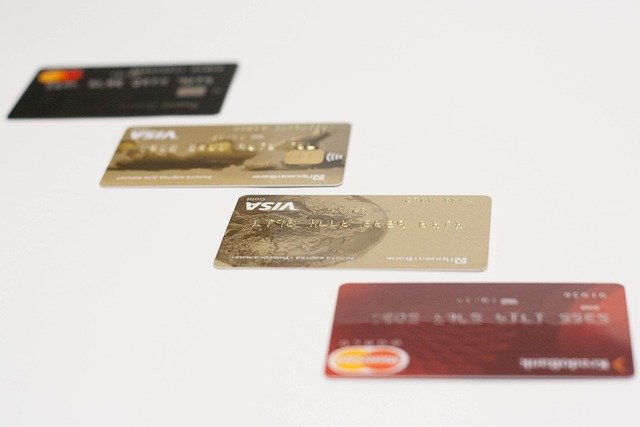Navigating the World of Credit Cards: A Comprehensive Guide
Credit cards have become an integral part of modern financial life, offering convenience, security, and potential rewards for consumers. Whether you're a first-time applicant or looking to expand your credit portfolio, understanding the ins and outs of credit cards is crucial for making informed decisions. This article will explore the various aspects of credit cards, from their basic functions to advanced strategies for maximizing their benefits.

Unlike debit cards, which draw directly from your bank account, credit cards allow you to spend money you don’t necessarily have at the moment. This flexibility can be beneficial for managing cash flow or handling unexpected expenses. However, it’s crucial to understand that if you don’t pay off your balance in full each month, you’ll be charged interest on the remaining amount.
How can you choose the right credit card for your needs?
Selecting the right credit card depends on your financial situation, spending habits, and goals. Here are some factors to consider:
-
Interest rates: Look for cards with low Annual Percentage Rates (APRs), especially if you plan to carry a balance.
-
Annual fees: Some cards charge yearly fees, which may be offset by rewards or benefits.
-
Rewards programs: Consider cards that offer cashback, points, or miles on purchases you frequently make.
-
Credit score requirements: Different cards cater to various credit profiles, from excellent to fair or building credit.
-
Additional perks: Some cards offer travel insurance, purchase protection, or extended warranties.
Research multiple options and compare their features to find a card that aligns with your needs and financial goals.
What are the benefits and risks of using credit cards?
Credit cards offer numerous advantages when used responsibly:
-
Convenience: They’re widely accepted and eliminate the need to carry cash.
-
Build credit history: Regular, on-time payments can improve your credit score.
-
Rewards: Many cards offer cashback, points, or miles on purchases.
-
Fraud protection: Credit cards often have stronger fraud safeguards than debit cards.
-
Purchase protection: Some cards offer extended warranties or insurance on purchases.
However, credit cards also come with potential risks:
-
High interest rates: Carrying a balance can lead to significant interest charges.
-
Debt accumulation: Easy access to credit can tempt overspending.
-
Credit score impact: Late payments or high balances can negatively affect your credit score.
-
Fees: Annual fees, late payment fees, and balance transfer fees can add up.
How can you improve your chances of credit card approval?
Improving your chances of credit card approval involves several steps:
-
Check your credit score: Understanding where you stand helps you apply for cards suited to your credit profile.
-
Pay bills on time: A history of timely payments improves your creditworthiness.
-
Reduce existing debt: Lower credit utilization ratios make you a more attractive applicant.
-
Maintain stable employment and income: Lenders prefer applicants with steady financial situations.
-
Avoid multiple applications in a short time: Too many hard inquiries can negatively impact your credit score.
Consider starting with secured credit cards or becoming an authorized user on someone else’s account if you’re new to credit or rebuilding your score.
What strategies can help you manage credit card debt effectively?
Managing credit card debt is crucial for financial health. Here are some effective strategies:
-
Pay more than the minimum: This reduces interest charges and pays off debt faster.
-
Prioritize high-interest debt: Focus on paying off cards with the highest APRs first.
-
Consider balance transfers: Moving high-interest debt to a card with a 0% introductory APR can save money.
-
Create a budget: Track your spending to ensure you can pay off your balance each month.
-
Set up automatic payments: This helps avoid late fees and missed payments.
-
Negotiate with creditors: Some may be willing to lower your interest rate or waive fees.
Remember, the goal is to use credit cards as a tool for building credit and managing expenses, not as a way to live beyond your means.
How do credit card rewards programs work?
Credit card rewards programs offer incentives for using your card. Here’s a comparison of some popular reward structures:
| Reward Type | How It Works | Best For | Potential Drawbacks |
|---|---|---|---|
| Cash Back | Earn a percentage of purchases back as cash | Everyday spenders | Lower earning rates than other types |
| Travel Miles | Earn miles for travel-related purchases | Frequent travelers | Limited redemption options |
| Points | Earn points for various purchase categories | Diverse spenders | Complex redemption systems |
| Store-Specific | Earn rewards for shopping at particular retailers | Loyal customers | Limited use outside specific stores |
Prices, rates, or cost estimates mentioned in this article are based on the latest available information but may change over time. Independent research is advised before making financial decisions.
Understanding how these programs work can help you maximize your rewards. Look for cards that align with your spending habits and offer rewards in categories where you spend the most. Be aware of any caps on earnings or expiration dates on rewards to ensure you’re getting the most value from your card.
In conclusion, credit cards can be powerful financial tools when used wisely. By understanding how they work, choosing the right card for your needs, and managing your usage responsibly, you can leverage credit cards to build your credit history, earn rewards, and enhance your financial flexibility. Always remember to read the fine print, stay within your budget, and pay your balance in full whenever possible to avoid costly interest charges.






